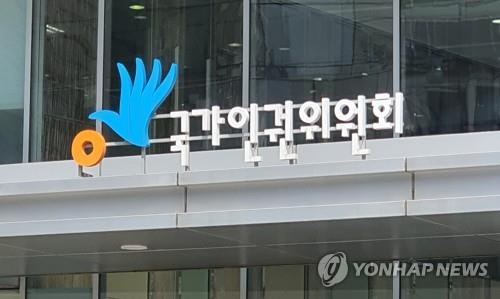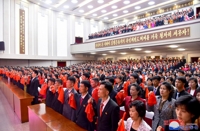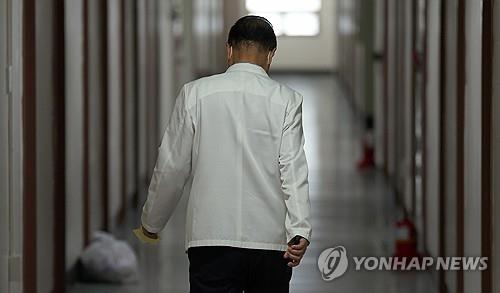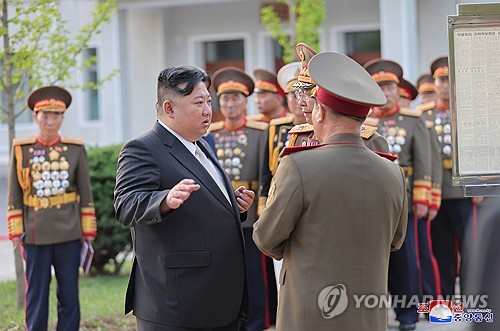Twentysomethings show widest gender gap in perception of sexual harassment: paper
SEOUL, May 8 (Yonhap) -- Men and women in their 20s show the biggest difference in their levels of sexual harassment understanding and gender equality consciousness than other age groups, research released by the state human rights watchdog said Saturday.
According to the report by the National Human Rights Commission of Korea (NHRCK), men in their 60s and teens have the highest level of misunderstanding and prejudice about sexual harassment, whereas women in their 20s and 30s have the lowest such level.
The NHRCK has compiled the report based on an online survey of 10,212 people nationwide, including fifth graders and older students, conducted from Oct. 21 to Nov. 16 last year.
The survey participants were asked questions containing misunderstanding and prejudice about sexual harassment -- "Are people who do not express an intention of refusal more responsible for sexual harassment?" "Does sexual harassment come from misunderstanding an expression of friendliness?" "Does harm caused by sexual harassment tend to be exaggerated?" and "Are natural sexual expressions often mistaken for sexual harassment?"
The most affirmative response was given a maximum score of 6, with the most dissenting response receiving a score of 1. It means higher scores reflect greater misunderstanding of sexual harassment.
The average score for all male respondents was 2.8, compared with 2.04 for all female respondents, the report said.
By age group, those in their 60s got a score of 2.96, followed by 2.72 for those in their 50s, 2.7 for teens, 2.56 for those in their 40s, 2.19 for those in their 30s and 2.01 for those in their 20s, it noted.
By age and gender group, men in their 60s and teens showed the highest and second highest scores of 3.1 and 3.07, respectively. In contrast, women in their 20s and 30s recorded the lowest scores of 1.75 and 1.98, respectively.
The gender gap in the perception towards sexual harassment was biggest among those in their 20s. Men and women in their 20s got scores of 2.6 and 1.75, respectively, registering a difference of 0.85. In other age groups, the gender gap ranged from 0.5 to 0.7.
The Seoul-based Happy Work Institute, which conducted the research work on behalf of the NHRCK, said people in their 60s, 50s and teens showed comparatively higher degree of misunderstanding towards sexual harassment.
It also noted that men exhibited lower level of consciousness towards gender equality than women in all age groups. Notably, the gender gap in the level of gender equality consciousness was biggest among those in their 20s, the institute said.
ycm@yna.co.kr
(END)
-
 Ateez member Yunho throws first pitch at MLB match between Dodgers, Mets
Ateez member Yunho throws first pitch at MLB match between Dodgers, Mets -
 N. Korea says Kim guided simulated nuclear counterattack drills for 1st time
N. Korea says Kim guided simulated nuclear counterattack drills for 1st time -
 N. Korea calls envisioned U.S. aid to Ukraine 'hallucinogen'
N. Korea calls envisioned U.S. aid to Ukraine 'hallucinogen' -
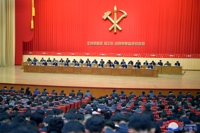 N. Korea calls on party propaganda officials to work harder
N. Korea calls on party propaganda officials to work harder -
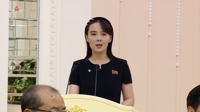 N.K. leader's sister slams joint S. Korea-U.S. military drills
N.K. leader's sister slams joint S. Korea-U.S. military drills
-
 Experts see possibility of N.K. conducting nuclear test before U.S. presidential vote
Experts see possibility of N.K. conducting nuclear test before U.S. presidential vote -
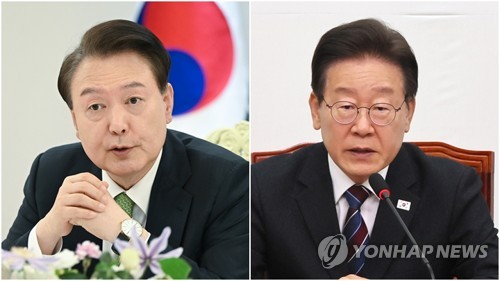 Details of meeting between Yoon, opposition leader undecided: presidential office
Details of meeting between Yoon, opposition leader undecided: presidential office -
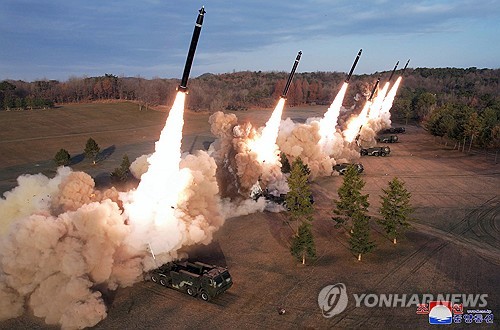 N. Korea says Kim guided simulated nuclear counterattack drills for 1st time
N. Korea says Kim guided simulated nuclear counterattack drills for 1st time -
 Looming weekly closure of major hospitals feared to worsen medical service crisis
Looming weekly closure of major hospitals feared to worsen medical service crisis -
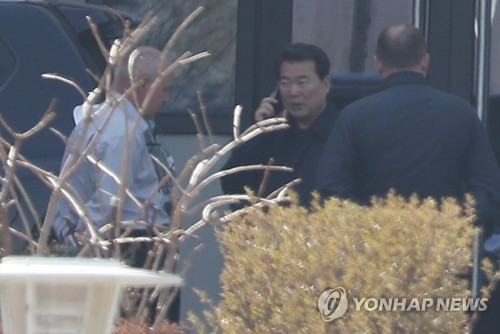 N. Korea calls envisioned U.S. aid to Ukraine 'hallucinogen'
N. Korea calls envisioned U.S. aid to Ukraine 'hallucinogen'
-
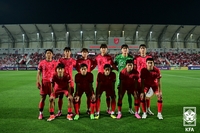 10-man S. Korea lose to Indonesia to miss out on Paris Olympic football qualification
10-man S. Korea lose to Indonesia to miss out on Paris Olympic football qualification -
 (LEAD) Hybe to file complaint against sublabel executives over internal conflict
(LEAD) Hybe to file complaint against sublabel executives over internal conflict -
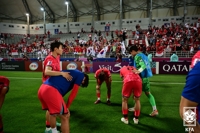 S. Korea eliminated in Olympic football qualifiers as poor defense, undisciplined play prove costly
S. Korea eliminated in Olympic football qualifiers as poor defense, undisciplined play prove costly -
 S. Korea reports highest suicide rate, ultra fine dust level among OECD nations: data
S. Korea reports highest suicide rate, ultra fine dust level among OECD nations: data -
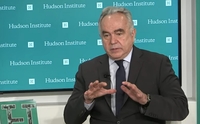 U.S. will take steps for three-way engagement on nuclear deterrence with S. Korea, Japan: Campbell
U.S. will take steps for three-way engagement on nuclear deterrence with S. Korea, Japan: Campbell

